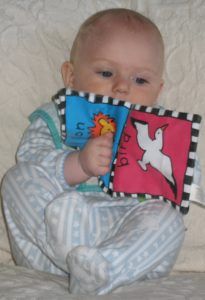
Beta readers, also known as pre-readers, are a writer’s best friend—or can be.
What are Beta Readers?
Beta readers are people who will read a sample chapter (or the whole book) and give you feedback, while you are in the writing or editing phases of your book.
When to Look for Beta Readers
Generally, you want to have a fairly strong draft to send to your readers. That way, you make the best use of their time and will get the most benefit. However, if you feel stuck and feel you need feedback before your chapter is polished, that’s fine. Perhaps you are in the early stages and trying to figure out what content to include or what tone to strike.
In that case, you may even want to meet with the beta reader to ask them questions. Another option is to have the pre-reader read out loud to you. That’s a good way to hear when the reader is not interpreting a sentence the way you intended— identifying the need for a comma, clarification or restructuring of a sentence, for example.
Who Makes a Good Pre-Reader?

Your most important beta readers are people in your target market. They will have a similar orientation to the majority of your readers and can most easily catch issues of tone, structure, confusion, what’s missing, etc. They understand your readers because they are them.
It can also be helpful to have a trusted colleague read and provide feedback on any professional issues. I’ve had clients say that their colleagues were very helpful in pointing out additional information that would enhance the book, for instance.
An editor is not a beta reader. Their job is as a professional who can edit your writing for style, clarity, punctuation, tone and plain old improving the writing. Editors can also teach you to write better.
It’s important to choose pre-readers who will give you constructive feedback. Obviously, someone who is just going to tell you how good your book is because they don’t want to hurt your feelings is not going to make a good beta reader. However, equally important is not to ask someone overly critical. They are likely to just make you feel badly and often the super-critic is not even terribly objective. Instead they are the master of the put-down. Stay away from these folks. You want constructive critique, not trauma!
Where to Find Beta Readers [bctt tweet=”Where to Find Beta Readers” username=”LisaTener”]
Clients, consistent readers of your blog (especially those who comment and engage frequently), friends of friends can all be beta readers. It is important to make sure you trust the person. After all, you are giving them unpublished work that you want them to keep confidential. If something feels a little off, trust your instincts. Don’t ever feel desperate.
Questions to Ask Your Readers

You don’t want to overwhelm them, ask just a few questions. Start with something positive to set the tone.
I suggest giving readers one chapter at a time, maybe 2 if short, because people can get overwhelmed with a whole book and end up not giving you any feedback. If you know you can depend on a particular reader to read the whole book, that’s fine, too.
Here are questions to ask:
- What do you like?
- What do you want more of?
- What’s missing?
- Where do you get bored?
- Where do you get confused?
- Any feedback on the structure or way it’s organized?
- Anything else you want me to know?
Feel free to shorten this list of questions if you want to keep it even simpler. If you have very specific questions you want to answer you can add them, but remember that if you have too many questions, you can overwhelm your readers.
Be sure to write a nice thank you note to beta readers and acknowledge them in the acknowledgements section of your book.
For additional tips to please your readers, read this post to help you Connect with Your Readers and Avoid These 3 Phrases That Push Readers Away.
Share your questions as a comment below! Also feel free to add suggestions or other comments.



Excellent suggestions, and gifting a copy of the published book might be a nice gesture, as well, depending on how much they read and the feedback they provided.
For those who want the entire book read, I have a client who found an effective approach. She contacted a few bloggers whose readers reflected her potential audience, and asked if they would post her call for Beta Readers. She offered them a token $50 Amazon gift card if they read the book and answered a short questionnaire by a specific date (about 6-8 weeks out). She made it clear that she would only give the gift card if they submitted the questionnaire by the date specified, so that she could ensure a timely response. She got half a dozen responses with some useful feedback, and the $300 cost was modest enough to be affordable, but at the same time recognized the readers’ generous time.
Thanks, Janice. That’s a great strategy. I love it!
Thanks so much, Lisa and Janice. Some great ideas here. I have one beta reader who is helping a lot, but these questions will assist in gaining more specific feedback. Also, I like Janice’s suggestion for how to find more beta readers who do not know me.
Is this my cousin Linda?
This was very helpful